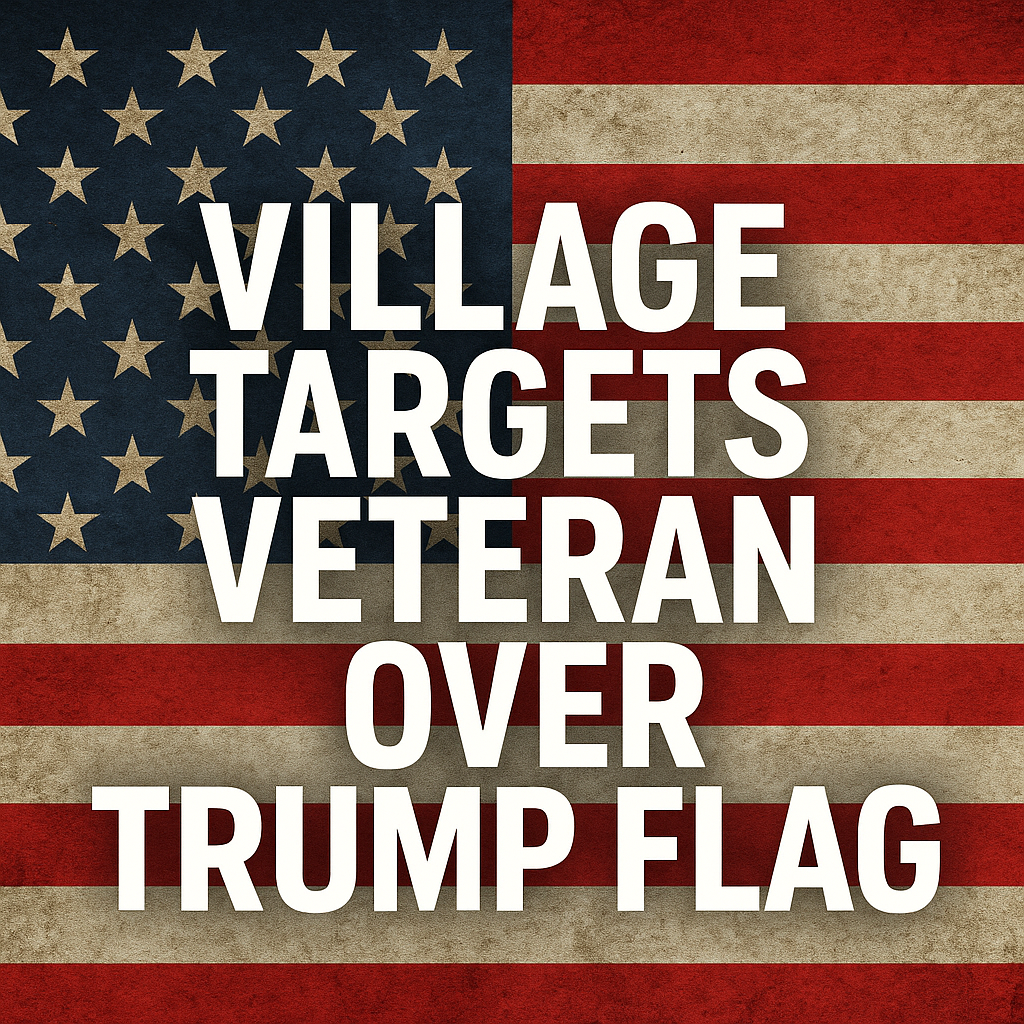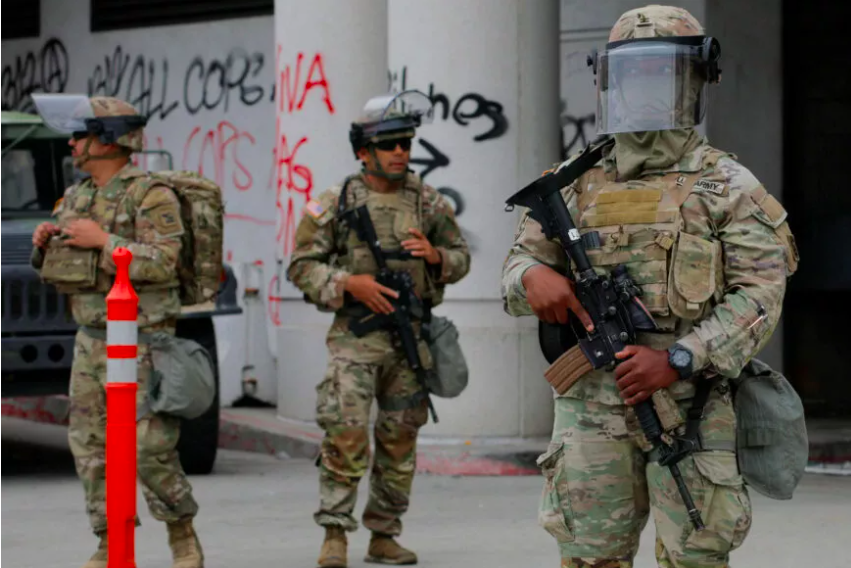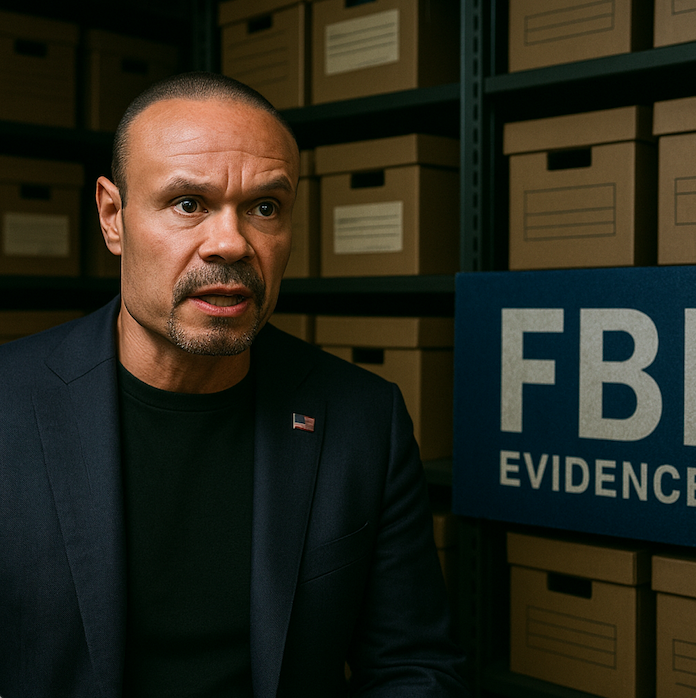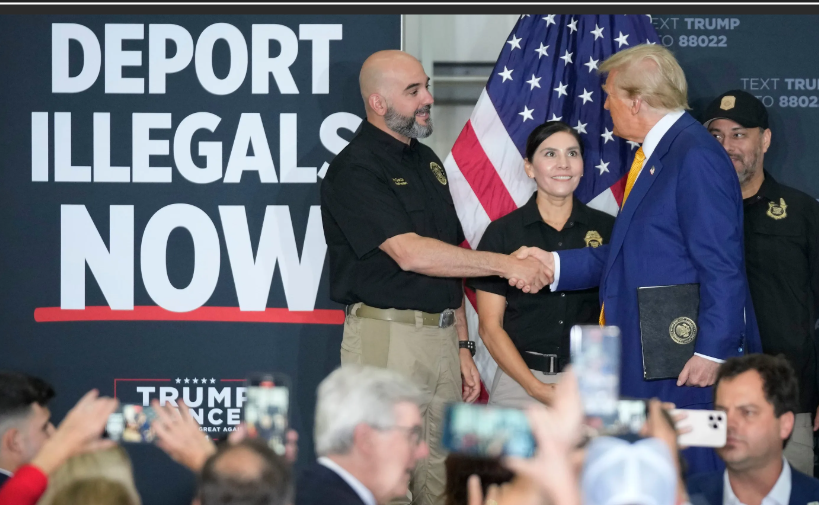An elderly U.S. veteran in New York is at the center of a growing free speech battle after his village government ordered him to remove a pro-Trump flag displayed outside his home. The controversy has ignited heated debate over patriotism, political expression, and the selective enforcement of local ordinances.
The resident, identified as an Air Force veteran in his 70s, has flown a flag supporting former President Donald Trump on his property for years. According to him, the flag represents not only his political convictions but also his right to free expression—something he risked his life to defend while serving his country.
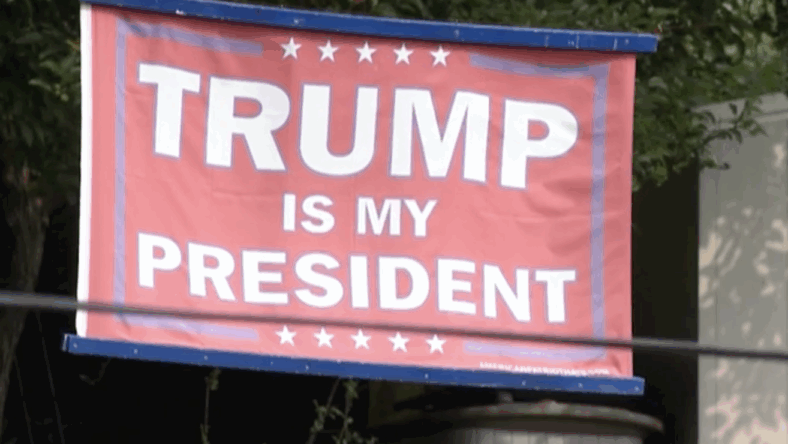
Village officials, however, recently informed him that his Trump flag must be taken down unless it is mounted on a proper flagpole. They cited a local ordinance regulating how flags can be displayed within village limits. While the mayor has insisted the rule applies to all political flags equally, critics argue the law is being enforced unevenly, with Trump supporters bearing the brunt of the restrictions.
The veteran has pushed back against the order, framing the issue as a matter of First Amendment rights. “I didn’t serve this nation so politicians in a small-town office could tell me what speech is acceptable,” he told supporters. “If they can silence me, they can silence anyone.”
His resistance has gained attention beyond the village. National conservative commentators, including Todd Starnes, have highlighted the case as an example of creeping government hostility toward free speech, especially when that speech leans conservative or expresses support for Donald Trump.
Adding to the controversy, local residents have noted that other flags and banners—including those celebrating Pride Month or various social causes—are often displayed without challenge. That inconsistency has fueled accusations of political bias. One neighbor reportedly asked, “Why are rainbow flags tolerated year-round, but a Trump flag suddenly requires a flagpole?”
The veteran himself has indicated he will not comply with the order. “This is my home, my property, and my country,” he said. “I won’t take down my flag just because some people don’t like what it says. That’s not America.” His statement has inspired local supporters, some of whom have begun displaying their own Trump flags in solidarity.
He wrote an op-ed for the Croton Chronicle explaining why he refused to take down the flag.
I am the son of a man who fled a fascist dictatorship to come to America. My father refused to serve in Mussolini’s army. His family was also opposed to Mussolini, and they hid him when government troops came by to round up draftees.
My father came to the United States in 1928. He told me “I am American first, and Italian second.” He remained opposed to fascism, and was proud to serve in the US Army during World War II. Many of my family served as well.
I graduated Croton High School in 1966 and joined the Army. Some of my classmates served during the Vietnam War. Some did not. It was a choice each of us had to make on our own. We grew up fast and accepted the consequences of our decisions.
I was sent to Texas to serve on the burial Honor Guard. It was an assignment nobody wanted. I was 19 years old and serving at the funerals of other 19 year olds. It was difficult. After four funerals, I couldn’t do it anymore. I was sent to a military camp in the jungle along the Thai border with Laos. To keep back the jungle, chemicals were sprayed to kill the foliage. I am living with the effects of that today and have been granted a disability pension and VA care due to Agent Orange.
My choices and my politics are my own. I don’t always agree with other people’s opinions in Croton but all of us have the right to free speech.
People ask me why I don’t surrender and take down my flag. It is because of the values I learned growing up here in Croton. It is because I am my father’s son.
The mayor of the village defended the order in an interview, claiming the regulation is “content neutral” and that all residents are expected to follow the same guidelines. He stressed that the veteran is not being told he cannot display a Trump flag—only that he must do so in accordance with the ordinance. Still, critics remain skeptical, pointing out that enforcement seems to surface only when conservative viewpoints are at stake.
The case highlights the growing cultural and political divide across small-town America. To many conservatives, the order represents an erosion of traditional liberties and a chilling effect on speech. To progressives in the region, local ordinances are simply tools to preserve “community standards.” Yet as the editorial pages of The Croton Chronicle recently argued, this is less about zoning rules and more about silencing one side of the political spectrum.
Christian leaders in the area have weighed in as well, reminding believers that while civil authorities should be respected, there is a higher obligation to defend truth and righteousness. The veteran’s defiance, they argue, is not simply about a political banner but about standing firm against cultural forces that seek to erode America’s foundational freedoms.
From a conservative perspective, the implications are clear: if a veteran’s right to display a political flag can be curtailed by bureaucrats in a small village, then ordinary citizens everywhere should be concerned. The First Amendment does not hinge on whether speech is popular or whether it fits neatly into local codes. It protects the very expression that others may find controversial.
For Christian conservatives, this incident serves as a reminder of the cultural moment America is in—where long-held freedoms are under siege, often cloaked in the language of regulations or community standards. It raises the question of whether believers are prepared to stand boldly, even when doing so means challenging authorities who exceed their rightful bounds.
The story continues to develop, with legal experts suggesting that the veteran could mount a First Amendment challenge if the village presses the issue. In the meantime, his act of resistance has already sparked a wider conversation about patriotism, free speech, and the future of liberty in America.
Keywords
Trump flag – veteran free speech – village ordinance – First Amendment – conservative values – patriotism under attack – political censorship – Christian worldview – local government overreach – defending liberty

